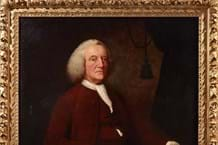ATG subscriber and vintage wristwatch enthusiast Graham Flower of Corsham, Wiltshire was the victim of a £12,000 fraud via the bogus site. At the beginning of August he listed a valuable vintage Rolex Prince wristwatch on eBay.
The rare 1930s watch, with a white and yellow striped 18k gold case, did not sell at its reserve price of $23,500 (£12,000), but after the auction the collector was contacted by various interested parties including Markus Karoly of Valencia who offered the full asking price providing he could use an escrow service.
Using a hotmail address, Karoly suggested eBay’s recommended site for these type of transactions www.Escrow.com.
Escrow accounts, designed to act as a secure third party to protect both buyer and seller, generally have a bad reputation in the eBay chatroom.
Fraudulent emails from scammers suggesting payment through unlicensed and unregulated escrow companies have led eBay to state: “If you are a buyer or a seller and choose to pay or be paid through an escrow service, you should only use Escrow.com, eBay’s approved escrow service.”
Upon taking advice, Mr Flower was reassured of the process: the buyer submits payment to Escrow.com who verify good funds and authorise the seller to ship the merchandise and submit tracking information. Escrow.com then confirm that the buyer receives the shipment and pay the seller by cheque or wire transfer.
In short, at no time can buyer or seller be in possession of both money and the item for sale. Escrow is typically used for purchases of $500 or more.
Mr Flower logged onto the site and completed the appropriate paperwork.
The appropriate funds appeared in the account and the watch was mailed via Royal Mail International and duly arrived in Spain to the given address, Daniel Gil 23, off 252 Ontinyent, 46870, Valencia.
But while waiting for funds to be released Mr Flower experienced difficulty accessing the site www.escrow.com and called the company’s North American headquarters.
The news he received from a company representative was devastating. Mr Flower was told that he had been the victim of a new high-tech scam. Via email contact with Mr Karoly a bug had been planted into his computer that redirected the web link www.Escrow.com to a seemingly identical but fake copy of the site.
Once the scammer had received the watch, the fake site was closed and the ‘buyer’ was uncontactable.
The name Markus Karoly was also known to www.escrow.com as a man responsible for similar scams and now wanted for questioning by the US authorities. Wiltshire Police are also investigating.
By Roland Arkell
Ebay escrow scam claims £12,000 victim
EBAY users are warned to exercise particular vigilance in online payment transactions following the emergence of a new high-tech scam that has already claimed several victims. The latest fraud to hit the online marketplace involves the replication of pages from the website eBay recommends for escrow transactions.




